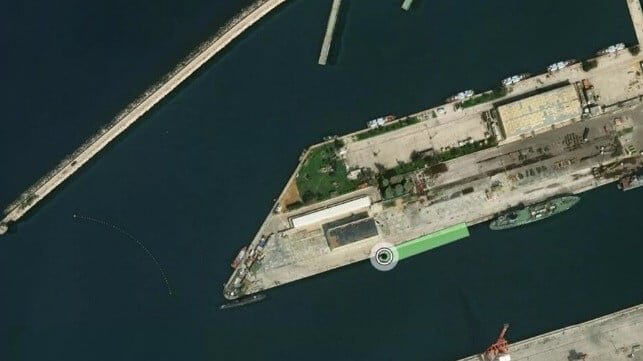Syria Cancels Russia’s 49-Year Lease at Tartus Port
On Monday, the new government of Syria made a significant decision by canceling Russia’s 49-year operating lease at the port of Tartus. This move marks the end of a multi-decade Russian naval presence in the Eastern Mediterranean. The cancellation of the lease has led to a series of developments, including the likely evacuation of Russian military personnel and equipment from the port.
According to reports from local news agency Levant24, the agreement with the Russian company to invest in Tartous Port has been terminated, and all revenues from the port now belong to the Syrian state. This decision comes after U.S.-designated terror group Hay’at Tahrir al-Sham (HTS) ousted Syrian dictator Bashar al-Assad in early December, forcing Assad’s Russian military backers to retreat to their bases at Tartus and Hmeimem.
Russian Military Presence in Question
Under Assad’s regime, Russia had secured a long-term lease on the port of Tartus, home to the only Russian naval base in the Mediterranean. However, the ousting of Assad by HTS cast uncertainty over the future of Russia’s presence at Tartus, especially given the Russian Air Force’s past actions during the civil war.
As a precautionary measure, the Russian Navy’s Mediterranean Flotilla left Tartus and positioned itself off the coast. Military cargo ships, including the Sparta and Sparta II, were stationed in the area for weeks, raising speculation about a potential evacuation.
Equipment Stockpile and Potential Evacuation
Reports suggested that negotiations for a continued Russian presence in Syria had failed, leading to the accumulation of Russian ground forces and equipment at Tartus. There were claims that Syria’s new rulers were not allowing Russian ships to enter Tartus to remove valuable equipment, which may include advanced S-400 air defense systems.
Following the cancelation of Russia’s port lease, the ship Sparta II entered the inner harbor and berthed next to the equipment stockpile. Satellite imagery is expected to reveal whether the vessel will begin loading out the staged vehicles for shipment to an unknown destination.
Changes in Syria’s Ports
There are indications that HTS is dismantling the drug-smuggling industry that supported the Assad regime during the civil war. Syria, under the leadership of Bashar’s brother Maher al-Assad, became a major exporter of the amphetamine captagon, which was widely used by terrorist groups for its stimulant effects.
The port of Latakia played a significant role in importing precursors for manufacturing captagon, with exports smuggled through various ports, including Tartus. The crackdown on drug smuggling by HTS could lead to significant changes in Syria’s port operations.


